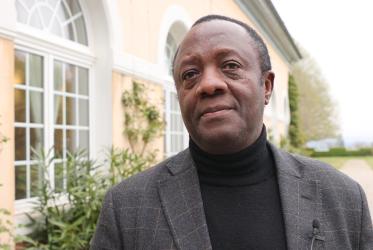Displaying 1 - 20 of 33
A Guide for Churches on the Prevention of Obstetric Fistula
26 October 2023
Philippines delegation meets with WCC to discuss human rights
19 October 2023
HIV and AIDS Civil Society Networks and the Faith Sector
Lessons Learnt from Strategic Engagement in India, Dominican Republic, Indonesia, and Jamaica
31 January 2023
Assembly workshop looked toward ending AIDS epidemic by 2030
19 September 2022















